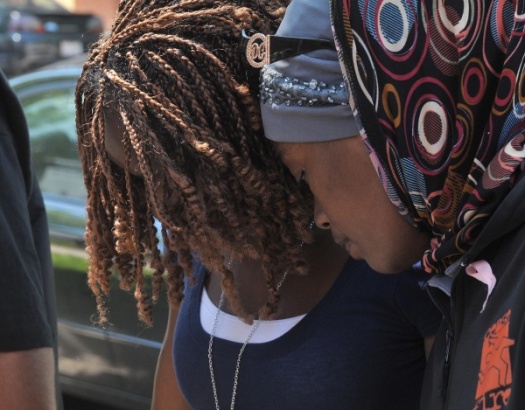
The fatal shootings of Robert Anderson and Jovan Saffore — both gunned down this week in separate incidents on the West Side — implore the graveness of the need for the anti-violence organization CeaseFire, or the “Interrupters” as they are
The fatal shootings of Robert Anderson and Jovan Saffore — both gunned down this week in separate incidents on the West Side — implore the graveness of the need for the anti-violence organization CeaseFire, or the “Interrupters” as they are now known.
Anderson, 38, was shot and killed Sunday while inside a car in the 4900 block of West Hubbard Street. Saffore, 17, was gunned down Monday in the 5500 block of West Cortland Street. The teen is the 27th murder victim in the Austin neighborhood this year.
By now you’ve seen “The Interrupters,” the critically-acclaimed documentary about the Chicago-based organization that leads anti-violence marches, does outreach work and conducts conflict mediation between gangs to calm tension.
And, just about every block your own has some form of CeaseFire signage, such as “Don’t Shoot. I Want To Grow Up.”
Jason Harrison is a prime example of how the documentary has made an impact since its debut earlier this year.
“Man, I can tell you some stories. I was so close to giving someone the business, but something just clicked in my head and I thought about the movie about CeaseFire. I just couldn’t do it. I had to slow it down,” Harrison told the Defender.
He was stunned to realize the effect the documentary had on him. It wasn’t until that heated moment about a month ago when he knew not only was the other person’s life saved, but his own, he said.
“I’m telling you, it was going to be either me or him. I walked away,” he stressed.
CeaseFire started nearly 11 years ago on the West Side and has spread to at least 16 communities throughout the state.
Daylight vigils and rallies are most popular, but, are also less threatening to those that are on the corners selling drugs, engaging in gang and other criminal activity. More often than not, the organization’s “violence interrupters” take to the streets during non-conventional hours to help stave off violence.
“We go to the belly of the beast,” Tio Hardiman, director of CeaseFire Illinois, has said many times.
Hardiman said one of the keys in stopping crime in historically violent areas is to “change the mindset” of individuals when it comes to violence and more community members should be trained to help stop violence and help police.
Ameena Matthews, an interrupter for CeaseFire who is also featured in the documentary, which she coins as a “real life documentary in a Black ghetto where hope isn’t lost,” shows no mercy when she’s on the streets, or in the virtual world.
One teen said she wished she had someone like Matthews in her life a few years ago when she started “wilding out.”
“I started fights almost every day because I felt like it. I really didn’t have a good reason and I didn’t care if I got in trouble. I was sort of like the girl in the movie that Ameena
was trying to help all the time,” Kyana Hart said.
The 16-year-old said watching the documentary felt like she was looking in the mirror. It was an eye-opener, she said.
“At first I started laughing, but then as Ameena kept trying to help her, I didn’t find it funny anymore. I was looking at Kyana. I needed someone like that to check me. I guess watching the movie made me check myself,” the girl said.
On Twitter Hardiman lauded Matthews as “the 21st Century Harriet Tubman.”
“The Interrupters,” directed and produced by Steve James and Alex Kotlowitz, has been nominated for Best Documentary at the Independent Spirit Award. It’s scheduled to return to the Gene Siskel Film Center Dec. 16 – 22.
